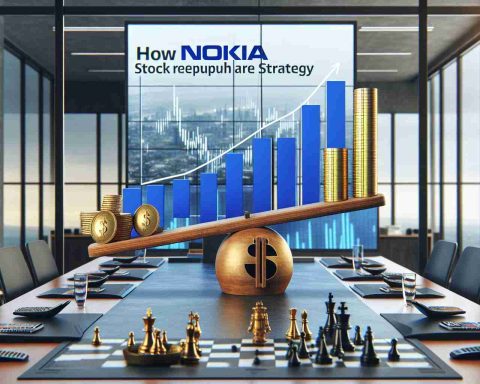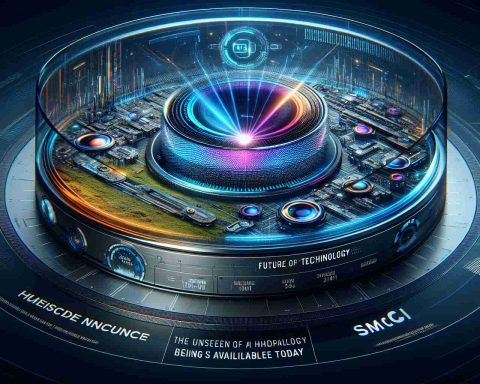Nokia’s Approach to Reclaiming Its Influence in the Smartphone Market
The world is watching as Nokia, the once-dominant giant in the mobile industry, attempts a dynamic comeback. A decade ago, Nokia was synonymous with mobile phones, but it lost significant market share amidst the smartphone revolution. Now, Nokia is evolving fast, leveraging cutting-edge technologies and seeking a strategic foothold in the rapidly shifting landscape of smart devices.
The company’s recent ventures are not solely focused on developing trend-setting smartphones but on expanding its ecosystem through future-ready innovations. Recent reports suggest that Nokia is heavily investing in 6G research and development, aiming to be at the forefront of tomorrow’s connectivity. By spearheading this technological transition, Nokia is betting on its strengths in network infrastructure to regain relevance.
Moreover, the company is embracing AI and IoT integrations, which promise to revolutionize everyday user experiences. Nokia’s collaboration with other tech giants to establish industry standards showcases its commitment to interoperability and quality. This strategic network-building is opening ally gates and forging paths to strong potential partnerships.
For investors, Nokia shares have started to look promising amid these strategic shifts. As the company lays down a robust plan for innovation, market analysts are eyeing a resurgence driven by a renewed focus, resilient strategies, and cutting-edge technology adoption. These moves have sparked interest among both technology enthusiasts and financial analysts. It is clear that Nokia is playing the long game, which could reshape its future in the tech ecosystem.
Nokia’s Comeback: How Its Ambitious Plans Could Shake Up the Tech World
As Nokia powers toward reclaiming its relevance, the impacts of its strategy are rippling across global tech and economic landscapes in transformative ways. While the brand is known for its committed push towards 6G research, many might not realize that this endeavor can potentially redefine how we interact with digital realms across various aspects of life.
What ripple effects could we see from Nokia’s strategies on community and society? With promises of ultrafast connections and enhanced stability through 6G, rural and underserved areas could finally close the gap in digital access. As such connectivity becomes a reality, educational, healthcare, and economic developments in these areas could see significant advancements, reshaping communities long deprived of digital equity.
A controversy to ponder: Could Nokia’s alliances with tech rivals lead to monopolistic tendencies? Critics argue that as large corporations collaborate to set technological standards, smaller entities and startups may be edged out, stifling diversity and innovation. However, proponents highlight improved interoperability and a more unified global tech framework as advantageous outcomes.
Advantages vs. Disadvantages: Nokia’s pioneering adoption of AI and IoT potentially offers a level of customization and intelligence in products unseen before, enhancing user efficiency and tailored experiences. Yet, the trade-off might include heightened privacy concerns and data security risks.
In light of these dynamics, Nokia’s actions could be a double-edged sword for people and markets. The continued evolution and balance between innovation and ethical practice will ultimately shape Nokia’s impact on future technological landscapes.
Looking for more on Nokia’s journey and the latest updates? Visit Nokia.


























